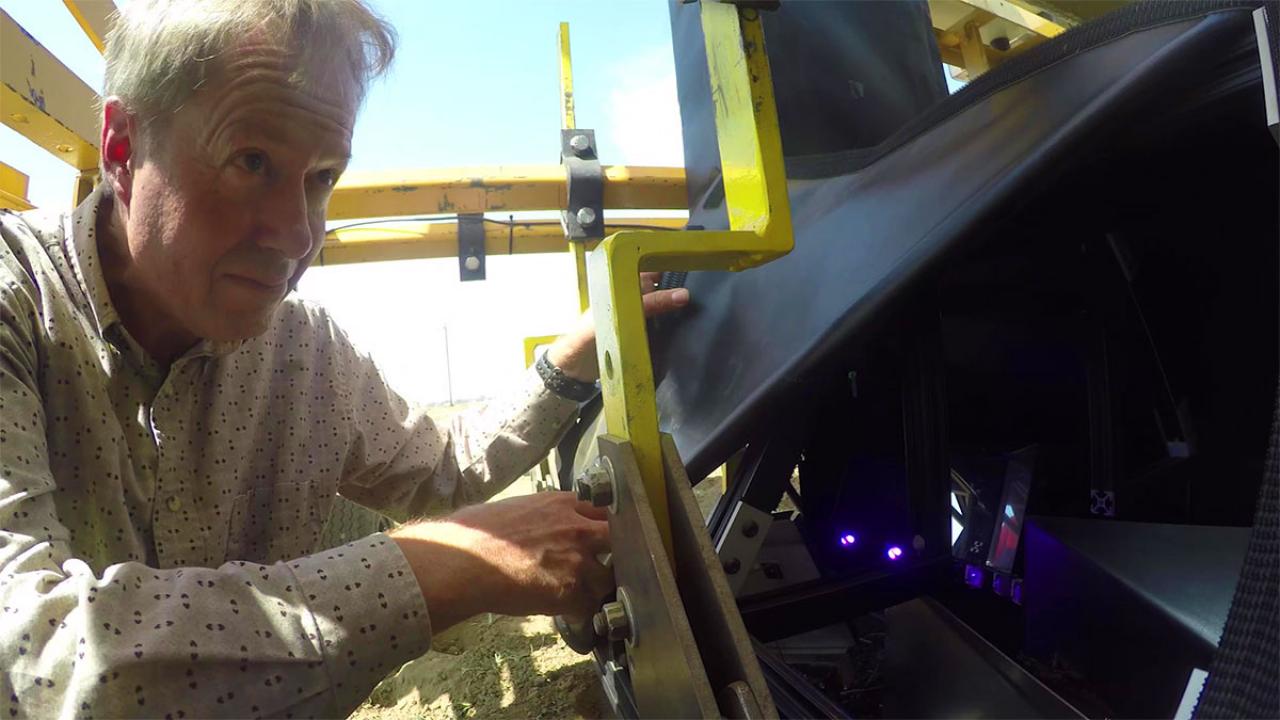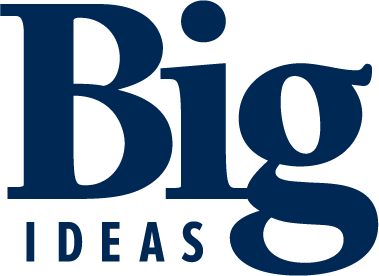
Tech for Sustainable Food Production
By Trevor Stewart
UC Davis is already a world leader in agriculture but as technology advances, the Smart Farm Big Idea aims to be at the forefront of the future of farming.
Biological and Agricultural Engineering Professor David Slaughter is the champion of the Smart Farm Big Idea. He believes the next era of agriculture begins with the expertise here at UC Davis. We spoke with him about what Smart Farm is and how it has the potential to change the way we grow food worldwide.
Q: Why is UC Davis the ideal place for Smart Farm to develop?
A: Agriculture is a complex environment. UC Davis is one of the best places in the world for Smart Farm because we have the expertise in engineering, computer science and biology that's needed to really pull this off. In order to make novel solutions for agriculture, we often are taking a systems approach where we look at one component of a biological system technology. A classic example is the tomato harvester, where we had to breed a special type of tomato that could be mechanically harvested in order to maximize efficiency. As we look to the future of agriculture, we're looking at new and exciting ways to pair the biology with the engineering to find innovative, sustainable solutions.
“UC Davis is one of the best places in the world for Smart Farm because we have the expertise in engineering, computer science and biology that's needed to really pull this off.”
Q: What are some challenges the agricultural industry is facing?
A: One of the biggest challenges farmers face is the current labor shortage in agriculture. Currently, the workforce is engaging in high-intensive, manual labor. This is not only inefficient, but it also isn’t a sustainable way to farm. While there is a belief that using mechanical or robot harvesters will take jobs away, it’s actually the opposite. By introducing more technology, we create higher-level job opportunities for the agriculture workforce. Instead of relying on manual labor, for which many farmers cannot find enough employees to do the work, Smart Farm’s use of technology provides new career opportunities. Current workers can learn a new skill and achieve a better-paying position, and it opens a lot of doors for the next generation of agriculture employees –– many who are adept at not only using technology, but creating the next breakthrough. It really is an exciting time for the future of farming. Smart Farm is at the forefront of a new era of agriculture.
Q: What are some of the specific functions technology can enhance in agriculture?
A: We are actually looking at a range of technologies throughout the production system. For example, we have planters that can record the GPS location of each seed or seedling as we put it into the ground. The robot can then go through the field, knowing where all the crop plants are located, and reference that information to apply technological solutions to each plant. We can do things like monitor plant water status so we are able to apply the right amount of water on a plant-by-plant basis. You can do something similar with applying necessary fungicides using this system as well. Overall, we can simply be more efficient with our time and resources, without sacrificing quality. When we talk about the “future of farming,” it is imperative that technology and sustainability go hand in hand.
Q: What is the future and potential of Smart Farm here at UC Davis?
A: As part of Smart Farm, we plan to create an Ag Innovation Hub. This will be a place where UC Davis campus experts and students can work together with people from the tech industry to create innovative new solutions for agriculture. It will also be a place where state-of-the-art biological learning can occur and will be attracting people from around the world who want to come to UC Davis to participate in the development of these innovative techniques. We also hope to create a new technology curriculum for agriculture so people can come and get careers related to high-tech agriculture.
Agriculture is a complex environment: We require the individual contributions from people with expertise across the range of biology engineering and computer science. This interdisciplinary approach is critical, and we probably will have other disciplines joining Smart Farm along the way. I define success for the Smart Farm Big Idea as accomplishing a couple of things: having technological solutions that will eliminate the most laborious pieces of agriculture, creating new agricultural career paths and developing sustainable systems that will use less water. If we accomplish those goals, agriculture will thrive.
Learn More About the Smart Farm Big Idea
